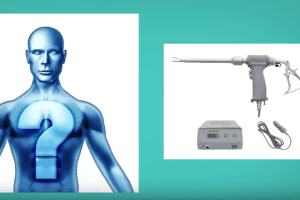
Medical Device Found To Spread Cancer In Women. The Federal Bureau of Investigation (FBI) is investigating the power morcellator, a surgical device that was found to spread cancer in women, and what Johnson & Johnson, the largest manufacturer of the device, knew about the tool’s hazards before pulling it off the market last year. Although a […]

Medical Device Found To Spread Cancer In Women. The Federal Bureau of Investigation (FBI) is investigating the power morcellator, a surgical device that was found to spread cancer in women, and what Johnson & Johnson, the largest manufacturer of the device, knew about the tool’s hazards before pulling it off the market last year.
Although a J&J spokesman said the New Jersey-based medical company is not aware of an investigation into the device, the Wall Street Journal reports that in recent months FBI agents have interviewed a retired pathologist who alerted J&J about potential problems with morcellators in 2006; a doctor whose own cancer was worsened by the device; and a California woman who collected the names of nearly 400 patients and families who may have been harmed by surgery using the morcellator.
In November 2014, the Food and Drug Administration (FDA) warned that the power morcellator should not be used for the vast majority of women. Many hospitals have either curtailed use of morcellators or are considering restrictions and a number of health insurers will no longer cover routine use of the device.
The power morcellator has been used in tens of thousands of minimally invasive surgeries each year. The device is used to remove fibroids, benign uterine growths, and is also used in hysterectomies. The rapidly spinning blade of the morcellator cuts uterine tissue into small pieces that can be removed through tiny incisions.
Proponents of the device say it permits a less invasive surgical approach, with less blood loss, smaller scars, and a faster recovery. But if the woman has a uterine sarcoma, an aggressive cancer that cannot reliably be detected before surgery, the morcellator can spread the malignancy in the woman’s abdomen, worsening her long-term chances of survival.
In April 2014 the FDA warned that women undergoing fibroid surgery have a one in 350 chance of having a hidden sarcoma and discouraged the use of the morcellator in many cases. In November, the FDA called for a “black-box” warning-its strongest caution-on the tool. Johnson & Johnson withdrew the morcellator from the market in July 2014, though other manufacturers continue to offer the device, the WSJ reports.
Dr. Robert Lamparter, a former pathologist at Evangelical Community Hospital in Lewisburg, Pa., said the FBI interviewed him on May 12 about his 2006 correspondence with the J&J subsidiary that sold morcellators. Dr. Lamparter told the company he was concerned about the potential for undetected cancer to be inadvertently spread if the morcellator was used in surgery. A J & J spokesman confirmed that the correspondence with Dr. Lamparter led J & J to revise the instructions for use of the device.
The company’s instructions had already recommended that doctors who suspected or know of malignant tissue should use a “tissue extraction bag”-a bag used to pull tissue from the body-with the device.
Others interviewed include Amy Reed, a 42-year-old Pennsylvania anesthesiologist who has been vocal about her worsened cancer after she underwent a hysterectomy with a morcellator in 2013; and Sarah Robinson, a physician assistant in Los Altos, Calif., who testified at an FDA hearing on the morcellator.
Robinson has collected a list of women and families of women who believe their cancer was worsened by the device. Ms. Robinson sent the list of 386 names to the FBI on April 3, the Wall Street Journal reports.
The personal injury attorneys at Parker Waichman offer free, no-obligation case evaluations. For more information, fill out our online form or call 1-800-YOURLAWYER (1-800-968-7529).


